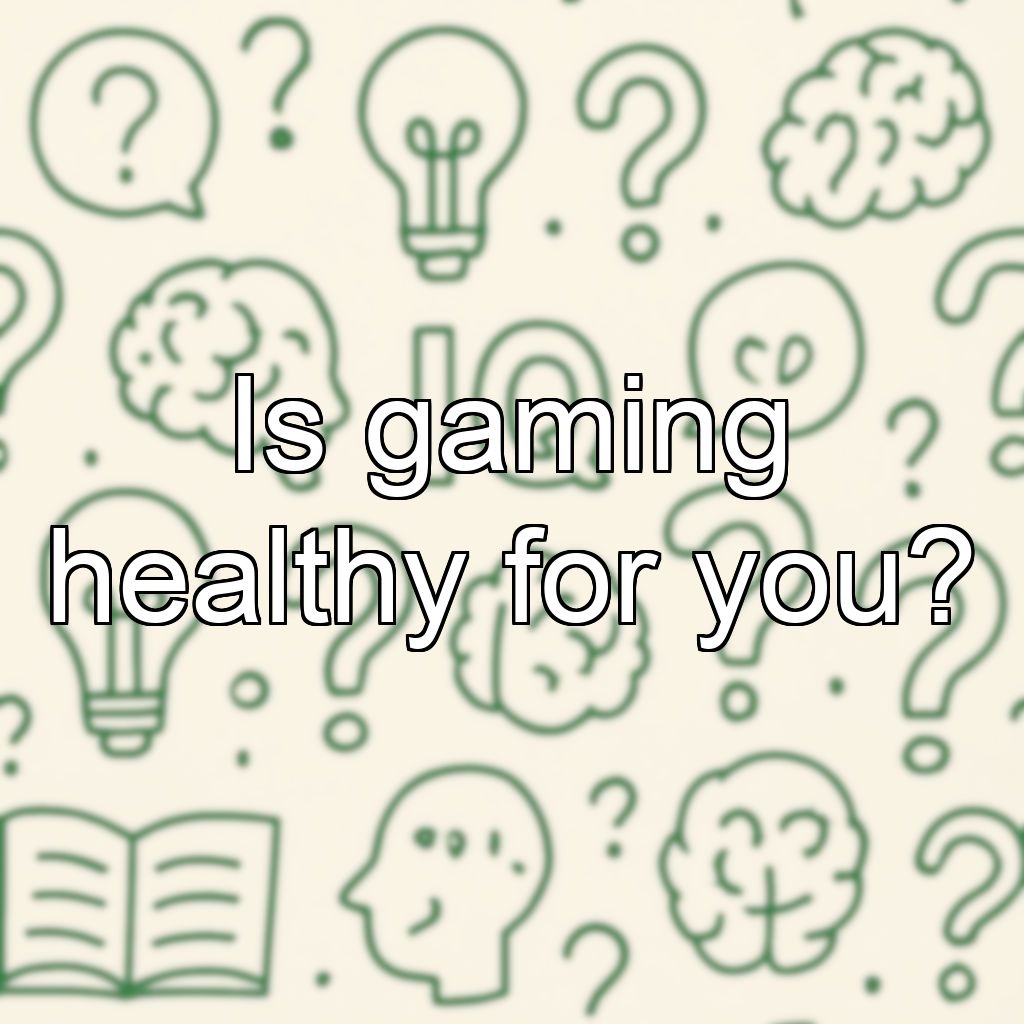Is gaming healthy for you?

Is Gaming Healthy?
The impact of gaming on health depends on various factors, including duration, content, social context, and individual differences. Here are some key points to consider:
Potential Health Benefits of Gaming
- Cognitive Skills: Video games can improve hand-eye coordination, reaction times, problem-solving abilities, and strategic thinking.
- Social Interaction: Multiplayer and online games can help develop teamwork, communication skills, and foster friendships.
- Stress Relief: Many people use gaming as a way to unwind and relieve stress after a long day.
- Therapeutic Uses: Certain games have been used for rehabilitation, treating phobias, or improving mental health conditions under professional guidance.
Potential Health Risks of Gaming
- Sedentary Lifestyle: Prolonged gaming can lead to physical inactivity, which is associated with obesity, poor posture, and other health problems.
- Eye Strain and Sleep Issues: Extended screen time can cause eye strain, headaches, and disrupt sleep patterns, especially if played before bedtime.
- Addiction and Mental Health: Excessive gaming may lead to addiction, social withdrawal, anxiety, or depression in some individuals.
- Physical Discomfort: Repetitive strain injuries, such as carpal tunnel syndrome, can occur from long gaming sessions.
Tips for Healthy Gaming
- Take regular breaks (every 30–60 minutes) to stretch and move around.
- Practice good posture and use ergonomic furniture.
- Set limits on daily gaming time and balance with other activities.
- Stay hydrated and maintain a balanced diet.
- Avoid gaming too close to bedtime to protect sleep quality.
Conclusion: Gaming can be healthy and beneficial when done in moderation and balanced with other aspects of life. Being mindful of potential risks and taking preventive steps can help ensure that gaming remains a positive activity.